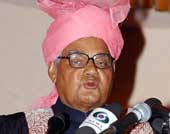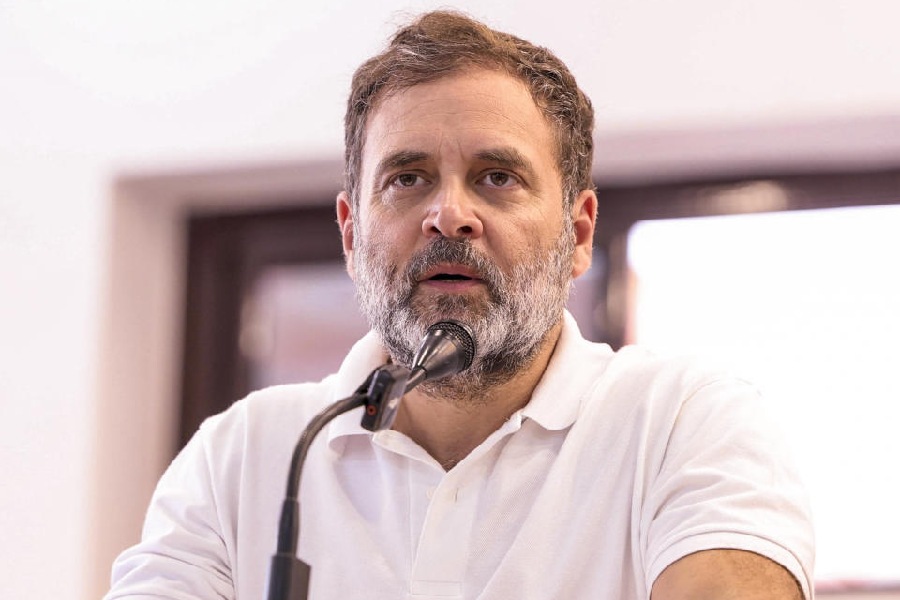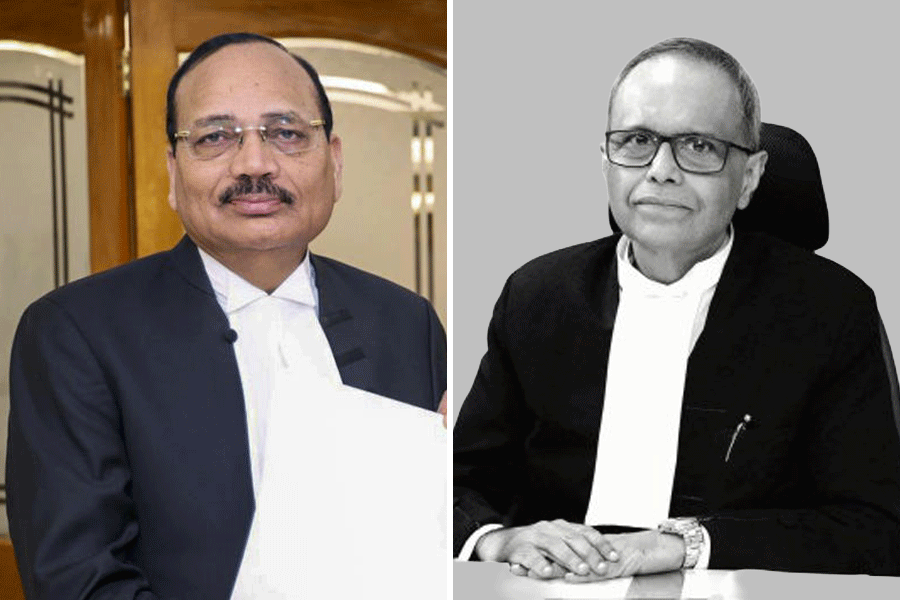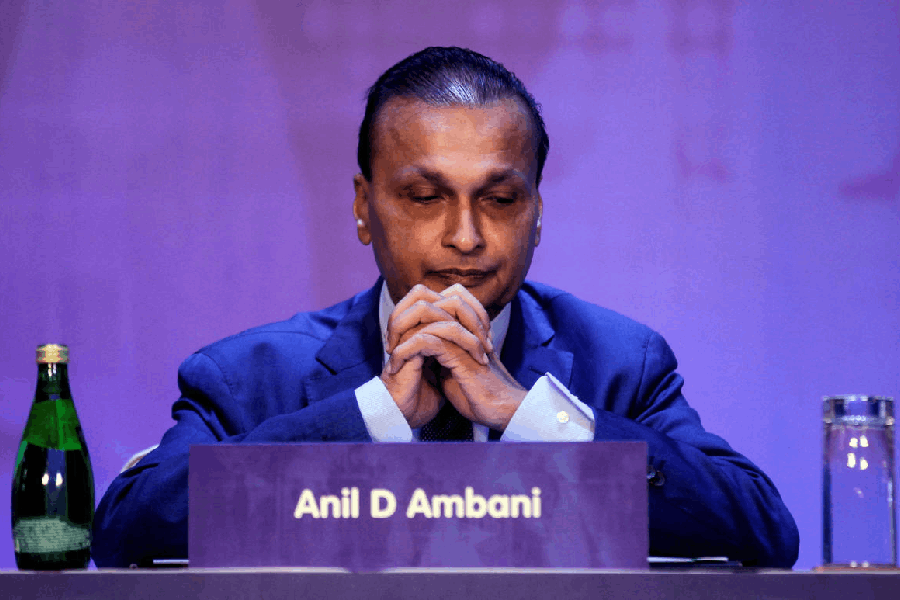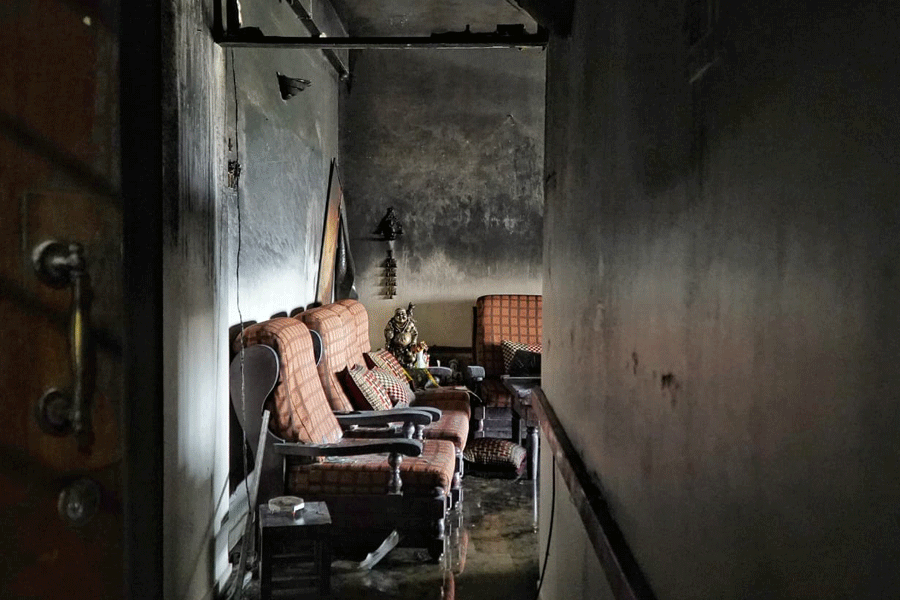|
|
A crowd of 20,000 was drummed up for the prime minister in Srinagar where he delivered himself of a sermon which was, as usual, long on poetry and short on substance. He recited a line of indifferent verse which included a word which seemed to presage the resumption of a dialogue with Pakistan. While reporters hungry for copy wired out headlines about Vajpayee stretching to Pakistan his hand of peace, the Bharatiya Janata Party president, M. Venkaiah Naidu, immediately put out a counter-statement which said, in effect, that the prime minister’s poetaster fancy did not mean a change of policy. The barren slogan was reiterated that there could be no dialogue with Pakistan until Pakistan ceased its cross-border terrorism in Jammu and Kashmir.
Coming on top of the ramblings of the foreign minister, Yashwant Sinha, about India imitating the United States of America to undertake a pre-emptive strike on Pakistan (hotly denied by George Fernandes as not being government policy), the Pakistanis must be thoroughly confused as to what the Indians are about and what the Indian government proposes to do next. Is this how a nuclear weapon power behaves with another nuclear weapon power?
Similar confusion envelops our internal dialogue with dissident elements in the Kashmir valley. Governors and interlocutors are appointed after endless speculation — and then there is no forward movement. The prime minister promises, as he did on his last outing to Srinagar, that the dialogue with the valley’s domestic dissidents will be held insaniyat ke dayire mein — within the framework of not the Constitution but within the bounds of humanity. As if humanity is absent from the Constitution!
But years after that bit of poetry no one knows in what sense the bounds of humanity lie, in the prime minister’s eye, beyond the confines of the Constitution. Poetry as a substitute for policy is playing havoc with matters of vital national interest. No clearer are the prospects of a resumption of the external dialogue with our difficult but inescapable neighbour, Pakistan.
The only clarity in the picture is that the US has threatened us — subtly but unmistakeably — that if India and Pakistan do not get their act together the Bushmen will do to us as they have done to Saddam Hussein. The message is out that subaltern states like India and Pakistan survive on obeisance to the sole superpower. The United Nations is dead. Woodrow Wilson to Franklin Delano Roosevelt are out. Teddy Roosevelt is in — with this one significant difference that while Teddy talked softly and carried a big stick, this lot talks loudly and carries a battery of cruise missiles.
It would make more sense for India to start talking to Pakistan of our own volition than at the behest of others. Our government says a settlement is not possible with a dictatorial regime. Well, Field Marshall Ayub Khan lasted eleven years (1958-1969). And General Zia-ul-Haq lasted eleven years (1977-1988). I have little doubt that chief of army staff, Pervez Musharraf too, will last his eleven years from 1999 onward.
As for civilian regimes in Pakistan, there have indeed been several over the last 55 years — every one of them since 1958 wholly dependent on the Pakistan armed forces. One — Zulfiqar Ali Bhutto’s (1971-77) — tried to subordinate the army to the polity. Bhutto was hanged for his pains. The fact is that the army is the only effective political party in Pakistan. Why not then do business with Pakistan when an army regime is on display instead of waiting for the marionettes of the Pak polity to come on-stage?
Surely, India should have learned the lesson from the army’s sabotage of Benzir Bhutto’s 1989 agreement with Rajiv Gandhi over the disputed Siachen glacier, and the Kargil incursion engineered by General Pervez Musharraf to undercut peacenik prime minister Nawaz Sharif, that if the Pak armed forces want an agreement, there will be an agreement. And if the Pak armed forces do not want an agreement, there will be no agreement. Is it not more likely that the armed forces will abide by an agreement they make than one negotiated over their heads or behind their backs? An Indian Pakistan policy which rests on the restoration of democracy in Pakistan is an exercise in wishful thinking. Or an excuse for not having a Pakistan policy beyond deriving electoral advantage from the average Indian aversion to anything remotely Pakistani.
The unresolved conflicts in the Pakistani psyche and polity lead many Indians to imagine that it is only a matter of time before Pakistan disintegrates under the weight of its own contradictions. This is a seriously flawed perception. For whatever their internecine dissensions, there is no dynamic in the direction of disintegration, except on the fringes of the polity and that too expressed mostly in diaspora frustration. Pakistan has weathered the storm of its initial decades. It is here to stay. Like many other countries, including to some extent our own, the fact of being a state, is the bulwark protecting disputation over the nature of Pakistan’s nationhood from spilling over into the dismantling of the state. The argument over nationhood, acute as it is, can be and has been contained within the framework of the Pakistani state. Therefore, the dissolution of the Islamic Republic of Pakistan is simply not on the cards.
There are also those who believe we can take advantage of the internal divisions and bickering in Pakistan to drive a wedge between Pakistani and Pakistani. This too is a seriously flawed perception. Any interference by India in their internal affairs, covert or overt, real or perceived, serves only to unite all Pakistanis. Indian hostility rallies Pakistanis to their flag. They are not about to return to the bosom of Mother India.
However, provided they are reassured that India is not engaged in a hostile take-over bid of their country, the people of Pakistan, by and large, are ready to normalize relations with India — but not till the issue of Kashmir is resolved. And the Pakistani establishment, recognizing this, seeks to legitimize its authority, as both Zia and Musharraf have done, by demonstrating to the people that Pakistan can work with India on normalizing relations — but subject to the issue of Kashmir being resolved.
Thus, Kashmir is to 21st century India-Pakistan relations what Congress-League tussles over separate electorates and weightage and provincial groupings were to the Freedom Movement. We won freedom by remaining firm, but suffered vivisection by remaining rigid. It is by remaining firm on larger goals but flexible on lesser issues that we might still win the peace through dialogue and interaction. In any case, is there a viable alternative to dialogue?
Yes, there is, says the National Alliance: the Americans! In the fond belief that the US would pull our irons out of the fire if we cosied up to Washington, the former foreign minister, Jaswant Singh, is responsible for the comforting conviction that friendship with Washington is the key to sorting out Pakistan. In the event, Osama bin Laden has ensured that Washington prefers dictatorial Islamabad, which serves an American interest, to democratic New Delhi, which serves only an American principle. It would make more sense for us to recognize that our setting the pre-condition of no talks with Pakistan till it stops cross-border terrorism puts no pressure at all on Pakistan: it only obliges Pakistan to step up cross-border terrorism to show its people that Pakistan is not about to buckle to Indian pressure.
We must recognize also that the Americans are not about to compel Pakistan to rein itself in. Washington, with reason, believes Pakistan is on the right track in offering to talk to India and that it is India which is being counter-productive in setting conditions it can neither itself enforce nor get others to enforce. In this light, it makes most sense for us to speak direct to Pakistan. That certainly makes more sense than, like the Duke of York in the kindergarten ditty, marching our army up the hill, only to march it down again. And, above all, it makes the best sense to remember that Musharraf is no military push-over. It will take but eight minutes for the radiation from a nuclear weapon exploded over Lahore to drift into Amritsar — and vice versa.

